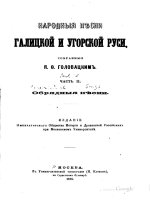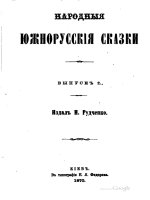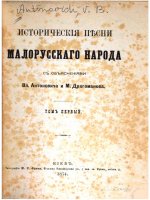OWNER 187
Bạn đang xem bản rút gọn của tài liệu. Xem và tải ngay bản đầy đủ của tài liệu tại đây (95.25 KB, 9 trang )
SƠ GD&ĐT VINH PHUC
TRƯƠNG THPT LIÊN SƠN
(Đề thi gồm: 05 trang)
ĐỀ KTCL ƠN THI THPT QUỐC GIA NĂM 20172018
Mơn: TIẾNG ANH – ĐỀ SỐ 187
Thời gian làm bài: 60 phút, không kể thời gian phát
đề
Ho va tên thi sinh:……………………………………………………………………. SBD:…………………………
Mark the letter A, B, C or D on your answer sheet to indicate the word whose underlined part
is pronounced differently from that of the rest in each of the following questions.
Question 1: A. flour
B. hour
C. pour
D. sour
Question 2: A. kites
B. catches
C. oranges
D. buzzes
Mark the letter A, B, C or D on your answer sheet to indicate the word that differs from the
rest in the position of the main stress in each of the following questions.
Question 3: A. weather
B. police
C. divide
D. attract
Question 4: A. comfortable
B. employment
C. important
D. surprising
Mark the letter A, B, C, or D on your answer sheet to indicate the correct answer to each
of the following questions.
Question 5: A/An________ is an official document stating that you have passed an examination,
completed a course, or achieved some necessary qualifications
A. certificate
B. requirement
C. education
D. test
Question 6: ________ flowers are usually made of plastic or silk.
A. Unreal
B. False
C. Artificial
D. Untrue
Question 7: The police have begun an________ into the accident which happened this afternoon.
A. investigating
B. investigatory
C. investigate
D. investigation
Question 8. It was no accident that he broke my glasses. He did it________ purpose.
A. with
B. on
C. by
D. about
Question 9: We________ touch since we________ school three years ago.
A. lost / have left
B. have lost / leave C. have lost / left
D. were losing / had left
Question 10. There was a________ table in the middle of the room.
A. Japanese round beautiful wooden
B. beautiful wooden round Japanese
C. beautiful wooden Japanese round
D. beautiful round Japanese wooden
Question 11. The more challenging the job is, ________.
A. the more interesting he finds
B. the more he finds it interesting
C. he finds it more interesting
D. the more interesting it is to him
Question 12: She asked________ so embarrassed when he saw Carole.
A. why did Mai look B. did Mai look
C. why Mai looked
D. why looked
Question 13: The old man________ to hospital early. I think they did it too late.
A. must have taken
B. should have taken
C. must have been taken
D. should have been taken
Question 14.When the manager of our company retires, the deputy manager will________ that position.
A. take over
B. catch on
C. stand for
D. hold on
Question 15: I read the contract again and again________ avoiding making spelling mistakes.
A. in terms of
B. by means of
C. with a view to
D. in view of
Question 16: ________, you need to achieve a score of 60% or more.
A. To pass this test
B. For being passed this test
C. In order pass this test
D. So that to pass this test
Mark the letter A, B, C, or D on your answer sheet to indicate the most suitable response to
complete each of the following exchanges.
Question 17: - Cindy: “Your hairstyle is terrific, Mary!” - Mary: “________________”
A. Yes, all right.
B. Thanks, Cindy. I had it done yesterday.
C. Never mention it
D. Thanks, but I’m afraid
Question 18: Two students Peter and Anny are talking about women’s role.
- Peter: “In my opinion, women would not go to work.”
- Anny: “________________”
A. Yes, I don’t agree B. What nonsense!
C. Yes, I do
D. Yes, it was ever
Mark the letter A, B, C, or D on your answer sheet to indicate the underlined part that needs
correction in each of the following questions.
Question 19: When precipitation occurs, some of it evaporates, some runs off the surface it
strikes, and some sinking into the ground.
A. When
B. some
C. the
D. sinking
Question 20. What happened in that city were a reaction from city workers, including firemen and
policemen who had been laid off from their jobs.
A. What happened B. were
C. including
D. their
Question 21: Opened the letter from her boyfriend, she felt extremely excited.
A. Opened
B. from
C. felt
D. excited
Mark the letter A, B, C, or D on your answer sheet to indicate the word(s) CLOSEST in meaning
to the underlined word(s) in each of the following questions.
Question 22: Lack of water and nutrients has impeded the growth of these cherry tomato plants
A. promoted
B. assisted
C. realized
D. prevented
Question 23: “It’s no use talking to me about metaphysics. It’s a closed book to me.”
A. a subject that I don’t understand
B. a theme that I like to discuss
C. a book that is never opened
D. an object that I really love
Mark the letter A, B, C, or D on your answer sheet to indicate the word or phrase that is
OPPOSITE in meaning to the underlined part in each of the following questions.
Question 24: For most male spiders courtship is a perilous procedure, for they may be eaten by
females.
A. complicated
B. dangerous
C. safe
D. peculiar
Question 25: A chronic lack of sleep may make us irritable and reduces our motivation to work.
A. uncomfortable
B. responsive
C. miserable
D. calm
Mark the letter A, B, C, or D on your answer sheet to indicate the sentence that is closest in
meaning to each of the following questions:
Question 26: You are in this mess right now because you didn’t listen to me in the first place.
A. If you listened to my advice in the first place, you wouldn’t be in this mess right now.
B. If you listen to my advice in the first place, you will not be in this mess right now.
C. If you had listened to my advice in the first place, you wouldn’t be in this mess right now.
D. If you had listened to my advice in the first place, you wouldn’t have been in this mess right
now.
Question 27: She was so busy that she couldn’t answer the phone.
A. She was very busy that she couldn’t answer the phone.
B. She was too busy to answer the phone.
C. She was too busy not to answer the phone.
D. She was very busy so that she couldn’t answer the phone
Question 28. It’s no use reading that book.
A. You should read that book.
B. That book has not been used.
C. That book is not worth reading.
D. I have used the book for a long time.
Mark the letter A, B, C, or D on your answer sheet to indicate the sentence that best combines
each pair of sentences in the following questions.
Question 29: He had just finished eating his breakfast. Then he fell down.
A. Hardly did he finished eating his breakfast when he fell down.
B. Hardly he had finished eating his breakfast when he fell down.
C. Hardly have he finished eating his breakfast when he fell down.
D. Hardly had he finished eating his breakfast when he fell down.
Question 30: She was the first woman in the Philippines. She was elected as the president of the
country.
A. She was the first woman being elected as the president of the Philippines.
B. She was the first woman who is elected as the president of the Philippines.
C. She was the first woman to be elected as the president of the Philippines.
D. She was the first woman elected as the president of the Philippines.
Read the following passage and mark the letter A, B, C, or D on your answer sheet to indicate the
correct word or phrase that best fits each of the numbered blanks from 31 to 35.
Many people enjoy lying in bed in the morning, but can you imagine having to spend 90
days in bed? Could you stand the boredom and the frustration of not being (31)______ to get up?
That was the task that faced 14 volunteers when they started out on a bed-rest experiment being
conducted (32)______ the European Space Agency.
The study had a serious purpose: to investigate the changes that take place in the human
body during long-duration spaceflight. Lying in a horizontal position was the best way of
(33)______ weightlessness. The aim was to discover what effect period of weightlessness will have
on the health of astronauts spending several months on the International Space Station.
The volunteers ate their meals, took showers and underwent medical tests without ever
sitting up. That's even tougher than it sounds, especially when you (34)______ that no visitors were
permitted. However, each volunteer did have a mobile phone, as well as access to the latest films,
computer games and music. Surprisingly, Everyone was in a good (35)______ at the end of the 90
days, 'I would do it again,' said one of the volunteers. 'It was disorientating, but we knew we were
'contributing to medical research and space exploration.'
Question 31: A. enabled
B. allowed
C. granted
D. approved
Question 32: A. by
B. on
C. for
D. about
Question 33: A. simulated
B. simulate
C. to simulate
D. simulating
Question 34: A. reckon
B. realise
C. regard
D. remark
Question 35: A. attitude
B. spirit
C. feeling
D. mood
Read the following passage and mark the letter A, B, C, or D on your answer sheet to indicate
the correct answer to each of the questions from 36 to 42
For more than six million American children, coming home after school means coming
back to an empty house. Some deal with the situation by watching TV. Some may hide. But all of
them have something in common. They spend part of each day alone. They are called “latchkey
children”. They are children who look after themselves while their parents work. And their bad
condition has become a subject of concern.
Lynette Long was once the principal of an elementary school. She said, “we had a school
rule against wearing jewelry. A lot of kids had chains around their necks with keys attached. I was
constantly telling them to put the keys inside shirts. There were so many keys; it never came to my
mind what they meant.” Slowly, she learned that they were house keys.
She and her husband began talking to the children who had keys. They learned of the effect
working couples and single parents were having on their children. Fear was the biggest problem
faced by children at home alone. One in three latchkey children the Longs talked to reported being
frightened. Many had nightmares and were worried about their own safety
The most common way latchkey children deal with their fears is by hiding. They may hide
in a shower stall, under a bed or in a closet. The second is TV. They often turn the volume up. It’s
hard to get statistics on latchkey children, the Longs have learned. Most parents are slow to admit
that they leave their children alone.
Question 36: The phrase “an empty house” in the passage mostly means
.
A. a house with too much space
B. a house with no furniture
C. a house with no people inside
D. a house with nothing inside
Question 37: One thing that the children in the passage share is that
.
A. they all wear jewelry
B. they spend part of each day alone
C. they all watch TV
D. they are from single-parent families
Question 38: The phrase “latchkey children” in the passage means children who
.
A. look after themselves while their parents are not at home
B. close doors with keys and watch TV by themselves
C. like to carry latches and keys with them everywhere
D. are locked inside houses with latches and keys
Question 39: What is the main idea of the first paragraph?
A. Why kids hate going home
B. Children’s activities at home
C. Bad condition of latchkey children
D. How kids spend free time
Question 40: What do latchkey children suffer most from when they are at home alone?
A. Tiredness
B. Boredom
C. Loneliness
D. Fear
Question 41: Lynette Long learned of latchkey children’s problems by
.
A. visiting their homes
B. talking to them
C. delivering questionaires
D. interviewing their parents
Question 42: It’s difficult to find out the number of latchkey children because
.
A. there are too many of them in the whole country
B. most parents are reluctant to admit that they leave their children alone
C. they hide themselves in shower stalls or under beds
D. they do not give information about themselves for safety reasons
Read the following passage and mark the letter A, B, C, or D on your answer sheet to indicate
the correct answer for each of the questions from 43 to 50.
A folk culture is small, isolated, cohesive, conservative, nearly self-sufficient group that is
homogeneous in custom and race, with a strong family or clan structure and highly developed
rituals.
Order is maintained through sanctions based in the religion or family, and interpersonal
relationships are strong. Tradition is paramount, and change comes infrequently and slowly.
There is relatively little division of labor into specialized duties. Rather, each person is expected to
perform a great variety of tasks, though duties may differ between the sexes. Most goods are
handmade, and a subsistence economy prevails. Individualism is weakly developed in folk
cultures, as are social classes. Unaltered folk cultures no longer exist in industrialized countries
such as the United States and Canada. Perhaps the nearest modern equivalent in Anglo-America is
the Amish, a German American farming sect that largely renounces the products and labor saving
devices of the industrial age. In Amish areas, horse-drawn buggies till serve as a local
transportation device, and the faithful are not permitted to own automobiles.
The Amish’s central religious concept of Demut, “humility”, clearly reflects the weakness of
individualism and social class so typical of folk cultures, and there is a corresponding strength of
Amish group identity. Rarely do the Amish marry outside their sect. The religion, a variety of the
Mennonite faith, provides the principal mechanism for maintaining order.
By contrast, a popular culture is a large heterogeneous group, often highly individualistic
and constantly changing. Relationships tend to be impersonal, and a pronounced division of labor
exists, leading to the establishment of many specialized professions. Secular institutions, of
control such as the police and army take the place of religion and family in maintaining order, and
a money-based economy prevails. Because of these contrasts, “popular” may be viewed as clearly
different from “folk”.
The popular is replacing the folk in industrialized countries and in many developing
nations, Folk-made objects give way to their popular equivalent, usually because the popular item
is more quickly or cheaply produced, is easier or time saving to use, or lends more prestige to the
owner.
Question 43: What does the passage mainly discuss?
A. Two decades in modern society
B. The influence of industrial technology
C. The characteristics of “folk” and “popular” societies
D. The specialization of labor in Canada and the United States
Question 44: Which of the following is typical of folk cultures?
A. There is a money-based economy.
B. Social change occurs slowly.
C. Contact with other cultures is encouraged. D. Each person develops one specialized skill.
Question 45: What does the author imply about the United States and Canada?
A. They value folk cultures.
B. They have no social classes.
C. They have popular cultures.
D. They do not value individualism.
Question 46: The phrase “largely renounces” is closest in meaning to_________.
A. generally rejects
B. greatly modifies C. loudly declares
D. often criticizes
Question 47: What is the main source of order in Amish society?
A. The government
B. The economy
C. The clan structure
D. The religion
Question 48: Which of the following statements about Amish beliefs does the passage support?
A. A variety of religious practices is tolerated. B. Individualism and competition are important.
C. Pre-modern technology is preferred.
D. People are defined according to their class.
Question 49: The word “prevails” is closest in meaning to_________.
A. dominates
B. provides
C. develops
D. invests
Question 50: Which of following is NOT given as a reason why folk-made objects are replaced by
mass-produced objects?
A. cost
B. quality
C. prestige
D. convenience
___________THE END___________
SƠ GD&ĐT VINH PHUC
TRƯƠNG THPT LIÊN SƠN
(Đề thi gồm: 05 trang)
ĐỀ KTCL ÔN THI THPT QUỐC GIA NĂM 20172018
Môn: TIẾNG ANH – ĐỀ SỐ 187
Thời gian làm bài: 60 phút, không kể thời gian phát
đề
Ho va tên thi sinh:……………………………………………………………………. SBD:…………………………
Mark the letter A, B, C or D on your answer sheet to indicate the word whose underlined part
is pronounced differently from that of the rest in each of the following questions.
Question 1: A. flour
B. hour
C. pour
D. sour
Question 2: A. kites
B. catches
C. oranges
D. buzzes
Mark the letter A, B, C or D on your answer sheet to indicate the word that differs from the
rest in the position of the main stress in each of the following questions.
Question 3: A. weather
B. police
C. divide
D. attract
Question 4: A. comfortable
B. employment
C. important
D. surprising
Mark the letter A, B, C, or D on your answer sheet to indicate the correct answer to each
of the following questions.
Question 5: A/An________ is an official document stating that you have passed an examination,
completed a course, or achieved some necessary qualifications
A. certificate
B. requirement
C. education
D. test
Question 6: ________ flowers are usually made of plastic or silk.
A. Unreal
B. False
C. Artificial
D. Untrue
Question 7: The police have begun an________ into the accident which happened this afternoon.
A. investigating
B. investigatory
C. investigate
D. investigation
Question 8. It was no accident that he broke my glasses. He did it________ purpose.
A. with
B. on
C. by
D. about
Question 9: We________ touch since we________ school three years ago.
A. lost / have left
B. have lost / leave C. have lost / left
D. were losing / had left
Question 10. There was a________ table in the middle of the room.
A. Japanese round beautiful wooden
B. beautiful wooden round Japanese
C. beautiful wooden Japanese round
D. beautiful round Japanese wooden
Question 11. The more challenging the job is, ________.
A. the more interesting he finds
B. the more he finds it interesting
C. he finds it more interesting
D. the more interesting it is to him
Question 12: She asked________ so embarrassed when he saw Carole.
A. why did Mai look B. did Mai look
C. why Mai looked
D. why looked
Question 13: The old man________ to hospital early. I think they did it too late.
A. must have taken
B. should have taken
C. must have been taken
D. should have been taken
Question 14.When the manager of our company retires, the deputy manager will________ that position.
A. take over
B. catch on
C. stand for
D. hold on
Question 15: I read the contract again and again________ avoiding making spelling mistakes.
A. in terms of
B. by means of
C. with a view to
D. in view of
Question 16: ________, you need to achieve a score of 60% or more.
A. To pass this test
B. For being passed this test
C. In order pass this test
D. So that to pass this test
Mark the letter A, B, C, or D on your answer sheet to indicate the most suitable response to
complete each of the following exchanges.
Question 17: - Cindy: “Your hairstyle is terrific, Mary!” - Mary: “________________”
A. Yes, all right.
B. Thanks, Cindy. I had it done yesterday.
C. Never mention it
D. Thanks, but I’m afraid
Question 18: Two students Peter and Anny are talking about women’s role.
- Peter: “In my opinion, women would not go to work.”
- Anny: “________________”
A. Yes, I don’t agree B. What nonsense! C. Yes, I do
D. Yes, it was ever
Mark the letter A, B, C, or D on your answer sheet to indicate the underlined part that needs
correction in each of the following questions.
Question 19: When precipitation occurs, some of it evaporates, some runs off the surface it
strikes, and some sinking into the ground.
A. When
B. some
C. the
D. sinking
Question 20. What happened in that city were a reaction from city workers, including firemen and
policemen who had been laid off from their jobs.
A. What happened B. were
C. including
D. their
Question 21: Opened the letter from her boyfriend, she felt extremely excited.
A. Opened
B. from
C. felt
D. excited
Mark the letter A, B, C, or D on your answer sheet to indicate the word(s) CLOSEST in meaning
to the underlined word(s) in each of the following questions.
Question 22: Lack of water and nutrients has impeded the growth of these cherry tomato plants
A. promoted
B. assisted
C. realized
D. prevented
Question 23: “It’s no use talking to me about metaphysics. It’s a closed book to me.”
A. a subject that I don’t understand
B. a theme that I like to discuss
C. a book that is never opened
D. an object that I really love
Mark the letter A, B, C, or D on your answer sheet to indicate the word or phrase that is
OPPOSITE in meaning to the underlined part in each of the following questions.
Question 24: For most male spiders courtship is a perilous procedure, for they may be eaten by
females.
A. complicated
B. dangerous
C. safe
D. peculiar
Question 25: A chronic lack of sleep may make us irritable and reduces our motivation to work.
A. uncomfortable
B. responsive
C. miserable
D. calm
Mark the letter A, B, C, or D on your answer sheet to indicate the sentence that is closest in
meaning to each of the following questions:
Question 26: You are in this mess right now because you didn’t listen to me in the first place.
A. If you listened to my advice in the first place, you wouldn’t be in this mess right now.
B. If you listen to my advice in the first place, you will not be in this mess right now.
C. If you had listened to my advice in the first place, you wouldn’t be in this mess right now.
D. If you had listened to my advice in the first place, you wouldn’t have been in this mess right
now.
Question 27: She was so busy that she couldn’t answer the phone.
A. She was very busy that she couldn’t answer the phone.
B. She was too busy to answer the phone.
C. She was too busy not to answer the phone.
D. She was very busy so that she couldn’t answer the phone
Question 28. It’s no use reading that book.
A. You should read that book.
B. That book has not been used.
C. That book is not worth reading.
D. I have used the book for a long time.
Mark the letter A, B, C, or D on your answer sheet to indicate the sentence that best combines
each pair of sentences in the following questions.
Question 29: He had just finished eating his breakfast. Then he fell down.
A. Hardly did he finished eating his breakfast when he fell down.
B. Hardly he had finished eating his breakfast when he fell down.
C. Hardly have he finished eating his breakfast when he fell down.
D. Hardly had he finished eating his breakfast when he fell down.
Question 30: She was the first woman in the Philippines. She was elected as the president of the
country.
A. She was the first woman being elected as the president of the Philippines.
B. She was the first woman who is elected as the president of the Philippines.
C. She was the first woman to be elected as the president of the Philippines.
D. She was the first woman elected as the president of the Philippines.
Read the following passage and mark the letter A, B, C, or D on your answer sheet to indicate the
correct word or phrase that best fits each of the numbered blanks from 31 to 35.
Many people enjoy lying in bed in the morning, but can you imagine having to spend 90
days in bed? Could you stand the boredom and the frustration of not being (31)______ to get up?
That was the task that faced 14 volunteers when they started out on a bed-rest experiment being
conducted (32)______ the European Space Agency.
The study had a serious purpose: to investigate the changes that take place in the human
body during long-duration spaceflight. Lying in a horizontal position was the best way of
(33)______ weightlessness. The aim was to discover what effect period of weightlessness will have
on the health of astronauts spending several months on the International Space Station.
The volunteers ate their meals, took showers and underwent medical tests without ever
sitting up. That's even tougher than it sounds, especially when you (34)______ that no visitors were
permitted. However, each volunteer did have a mobile phone, as well as access to the latest films,
computer games and music. Surprisingly, Everyone was in a good (35)______ at the end of the 90
days, 'I would do it again,' said one of the volunteers. 'It was disorientating, but we knew we were
'contributing to medical research and space exploration.'
Question 31: A. enabled
B. allowed
C. granted
D. approved
Question 32: A. by
B. on
C. for
D. about
Question 33: A. simulated
B. simulate
C. to simulate
D. simulating
Question 34: A. reckon
B. realise
C. regard
D. remark
Question 35: A. attitude
B. spirit
C. feeling
D. mood
Read the following passage and mark the letter A, B, C, or D on your answer sheet to indicate
the correct answer to each of the questions from 36 to 42
For more than six million American children, coming home after school means coming
back to an empty house. Some deal with the situation by watching TV. Some may hide. But all of
them have something in common. They spend part of each day alone. They are called “latchkey
children”. They are children who look after themselves while their parents work. And their bad
condition has become a subject of concern.
Lynette Long was once the principal of an elementary school. She said, “we had a school
rule against wearing jewelry. A lot of kids had chains around their necks with keys attached. I was
constantly telling them to put the keys inside shirts. There were so many keys; it never came to my
mind what they meant.” Slowly, she learned that they were house keys.
She and her husband began talking to the children who had keys. They learned of the effect
working couples and single parents were having on their children. Fear was the biggest problem
faced by children at home alone. One in three latchkey children the Longs talked to reported being
frightened. Many had nightmares and were worried about their own safety
The most common way latchkey children deal with their fears is by hiding. They may hide
in a shower stall, under a bed or in a closet. The second is TV. They often turn the volume up. It’s
hard to get statistics on latchkey children, the Longs have learned. Most parents are slow to admit
that they leave their children alone.
Question 36: The phrase “an empty house” in the passage mostly means
.
A. a house with too much space
B. a house with no furniture
C. a house with no people inside
D. a house with nothing inside
Question 37: One thing that the children in the passage share is that
.
A. they all wear jewelry
B. they spend part of each day alone
C. they all watch TV
D. they are from single-parent families
Question 38: The phrase “latchkey children” in the passage means children who
.
A. look after themselves while their parents are not at home
B. close doors with keys and watch TV by themselves
C. like to carry latches and keys with them everywhere
D. are locked inside houses with latches and keys
Question 39: What is the main idea of the first paragraph?
A. Why kids hate going home
B. Children’s activities at home
C. Bad condition of latchkey children
D. How kids spend free time
Question 40: What do latchkey children suffer most from when they are at home alone?
A. Tiredness
B. Boredom
C. Loneliness
D. Fear
Question 41: Lynette Long learned of latchkey children’s problems by
.
A. visiting their homes
B. talking to them
C. delivering questionaires
D. interviewing their parents
Question 42: It’s difficult to find out the number of latchkey children because
.
A. there are too many of them in the whole country
B. most parents are reluctant to admit that they leave their children alone
C. they hide themselves in shower stalls or under beds
D. they do not give information about themselves for safety reasons
Read the following passage and mark the letter A, B, C, or D on your answer sheet to indicate
the correct answer for each of the questions from 43 to 50.
A folk culture is small, isolated, cohesive, conservative, nearly self-sufficient group that is
homogeneous in custom and race, with a strong family or clan structure and highly developed
rituals.
Order is maintained through sanctions based in the religion or family, and interpersonal
relationships are strong. Tradition is paramount, and change comes infrequently and slowly.
There is relatively little division of labor into specialized duties. Rather, each person is expected to
perform a great variety of tasks, though duties may differ between the sexes. Most goods are
handmade, and a subsistence economy prevails. Individualism is weakly developed in folk
cultures, as are social classes. Unaltered folk cultures no longer exist in industrialized countries
such as the United States and Canada. Perhaps the nearest modern equivalent in Anglo-America is
the Amish, a German American farming sect that largely renounces the products and labor saving
devices of the industrial age. In Amish areas, horse-drawn buggies till serve as a local
transportation device, and the faithful are not permitted to own automobiles.
The Amish’s central religious concept of Demut, “humility”, clearly reflects the weakness of
individualism and social class so typical of folk cultures, and there is a corresponding strength of
Amish group identity. Rarely do the Amish marry outside their sect. The religion, a variety of the
Mennonite faith, provides the principal mechanism for maintaining order.
By contrast, a popular culture is a large heterogeneous group, often highly individualistic
and constantly changing. Relationships tend to be impersonal, and a pronounced division of labor
exists, leading to the establishment of many specialized professions. Secular institutions, of
control such as the police and army take the place of religion and family in maintaining order, and
a money-based economy prevails. Because of these contrasts, “popular” may be viewed as clearly
different from “folk”.
The popular is replacing the folk in industrialized countries and in many developing
nations, Folk-made objects give way to their popular equivalent, usually because the popular item
is more quickly or cheaply produced, is easier or time saving to use, or lends more prestige to the
owner.
Question 43: What does the passage mainly discuss?
A. Two decades in modern society
B. The influence of industrial technology
C. The characteristics of “folk” and “popular” societies
D. The specialization of labor in Canada and the United States
Question 44: Which of the following is typical of folk cultures?
A. There is a money-based economy.
B. Social change occurs slowly.
C. Contact with other cultures is encouraged. D. Each person develops one specialized skill.
Question 45: What does the author imply about the United States and Canada?
A. They value folk cultures.
B. They have no social classes.
C. They have popular cultures.
D. They do not value individualism.
Question 46: The phrase “largely renounces” is closest in meaning to_________.
A. generally rejects
B. greatly modifies C. loudly declares
D. often criticizes
Question 47: What is the main source of order in Amish society?
A. The government
B. The economy
C. The clan structure
D. The religion
Question 48: Which of the following statements about Amish beliefs does the passage support?
A. A variety of religious practices is tolerated. B. Individualism and competition are important.
C. Pre-modern technology is preferred.
D. People are defined according to their class.
Question 49: The word “prevails” is closest in meaning to_________.
A. dominates
B. provides
C. develops
D. invests
Question 50: Which of following is NOT given as a reason why folk-made objects are replaced by
mass-produced objects?
A. cost
B. quality
C. prestige
D. convenience
___________THE END___________
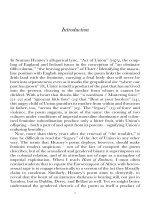
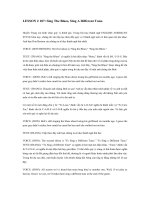
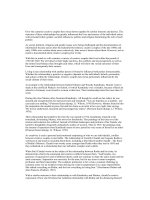

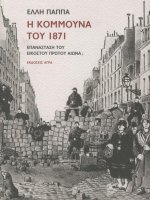
![e epokhe ton autokratorion [1875-1914] - erik khompsmpaoum](https://media.store123doc.com/images/document/14/y/ke/medium_kex1400042091.jpg)
